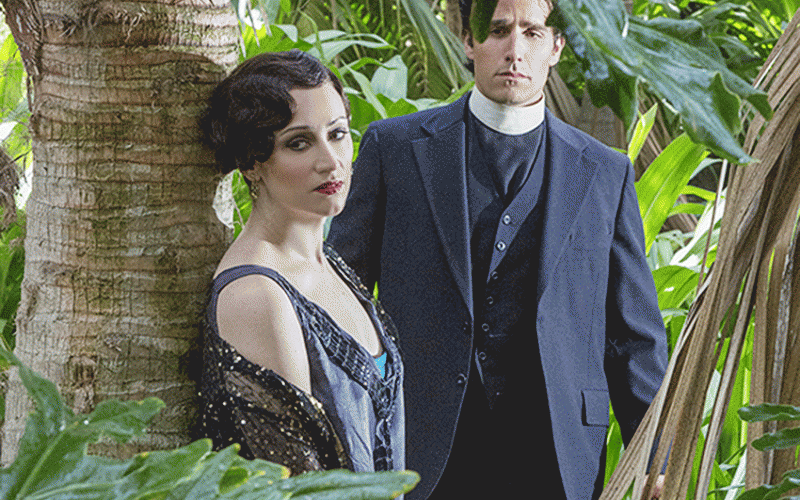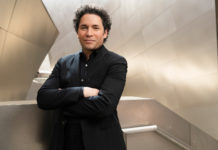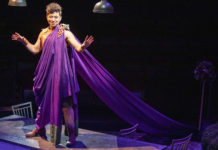One way of measuring the popularity of a work of fiction is how often it has been adapted for other forms. In the case of Somerset Maugham’s short story Rain, it has been turned into three movies (starring Gloria Swanson, Joan Crawford, and Rita Hayworth) and adapted for the stage as both a play and a play with music. It seems the tale of missionaries, a doctor, and his wife on a Samoan island who find their lives and their morality challenged by Sadie Thompson, a runaway prostitute from San Francisco is irresistible—and so it was for composer/lyricist Michael John LaChiusa, who has teamed up with Sybille Pearson to create a new musical. Their version of Rain begins previews next week at the Old Globe in San Diego.
LaChiusa is best known for his musicals Hello Again, The Wild Party, First Lady Suite, and, with Pearson, Giant (based on the novel by Edna Ferber). He has been nominated for five Tony Awards. Amongst his most ardent supporters is Audra McDonald, who appeared in his show Marie Christineand for whom he wrote Send (who are you? i love you.)
“I read [Rain] when I was a teenager,” he says during a break from rehearsals. “About ten years ago it had been suggested to do it as a musical. I wasn’t interested at that time, but I re-read it about two years ago. Re-reading it is interesting—it’s different. I felt like I had something to say about it. It has something to do with my age and experience. Every day you have something new to say; you are a different person.”
Not only does it make for juicy drama, but it also affords LaChiusa the opportunity for a diverse score. “I’ve got an New York wife of a doctor, so there’s an urbanity and sophistication to her,” he says. “I’ve got a runaway prostitute from San Francisco, who has only known one life and is on the downward direction of that life. So that gets a little raunchy. And I have this minister’s wife from the South, so I have prayers and a sense of hope for her.”
Rain allows LaChiusa to insert his own social commentary, just as Maugham was making his own opinion clear in the story. “At the core of the story for me is that struggle that we have as humans to be humane, to have a set of ideals, morals, and ethics. What I find in this story and Maugham’s work like Of Human Bondage is how we struggle with our human instincts. When we pose something that doesn’t work, it poses trouble for us as a society. I see that very often with the religious right pushing standards, but the liberals do it, too. It goes back and forth with those who identify as gay. I don’t have to get married and have children to be a healthy gay man. There’s this bourgeois thing that comes in. Religion can be a dangerous thing. That’s not just the church; I’m talking about any group’s so called ‘religion.’ God is a beautiful thing, but religion sometimes is not.”
Throughout LaChiusa’s career, he has opted to follow his muse and not tackle projects for the sake of commercial success. For him, it’s a no-brainer. “It’s simple, because it’s where I’m happiest,” he says. “I find myself happier being challenged. I love my theatre and my theatre folk, and I’m blessed I get to have that in my life. It’s not anything I take for granted. I’m one lucky man. I’m not going to upset the apple cart at my old age having fun, doing what I love to do, and loving my life.”
Photo Credit: Jim Cox














